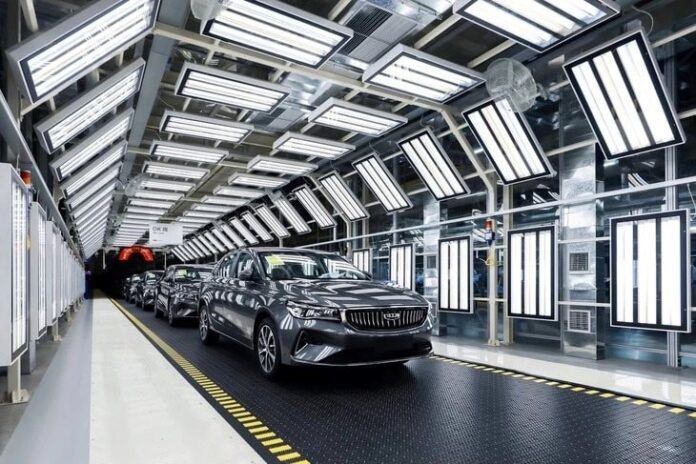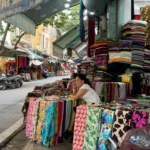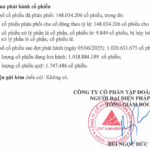According to Reuters, on June 7, 2025, at the Chongqing International Exhibition Center, Li Shufu, Chairman and founder of Geely (China’s second-largest automaker), stated that the global automotive industry is facing a “severe overcapacity” situation.
The Chinese automaker has decided to not build any new factories or expand production at its existing facilities. Instead, the company will focus on enhancing its technological capabilities.
Geely is currently in a joint venture with Vietnam’s auto ‘giant’ Tasco.
“Fate” of the nearly $170 million Geely assembly plant in Thai Binh?
According to Tien Phong newspaper, Geely’s existing projects and investment plans in Vietnam will not be affected by the group’s new policy.
The two sides signed a contract in September 2024 to assemble and distribute cars in Vietnam, including a project to build an assembly plant in Thai Binh with imported CKD kits, with a designed capacity of 75,000 units/year for phase 1.
The total investment of the project is approximately $168 million, in which Tasco will contribute 64% and Geely 36%.
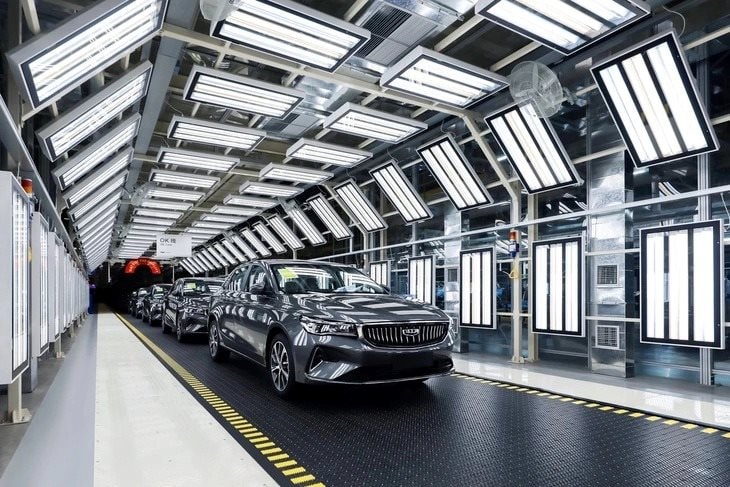
According to the plan, the joint venture will initially assemble Lynk & Co and Geely branded vehicles, and may expand to other brands in the future. The factory is expected to be constructed in 2025 and deliver the first cars at the beginning of 2026.
In 2024, Tasco Auto, a subsidiary of Tasco, sold more than 40,500 units, accounting for a 13.7% domestic market share. The company also expanded its showroom system to 126 locations and became the official distributor for several global brands, including Volvo, Lynk & Co, Zeekr, and most recently, Geely.
For 2025, Tasco aims to boost its localization strategy through the CKD assembly project, targeting exports to countries with FTAs with Vietnam.
At the 2025 shareholder meeting, Vu Dinh Do, Chairman of Tasco, shared the reason for choosing Geely based on the significant shifts in the global automotive industry.
Mr. Do opined that if we look back at the history of the automotive industry, 50 years ago was the golden age of Japan, and 20 years ago was the rise of South Korea.
In the next 20 years, Tasco believes that China will be the country leading the global automotive industry, thanks to its increasingly evident advantages in technology, production scale, and supply chain.
“We did not choose China randomly, but rather selected the most international partner among Chinese enterprises, with global capabilities, a diverse product portfolio, and a presence in many major markets,” emphasized Mr. Do.
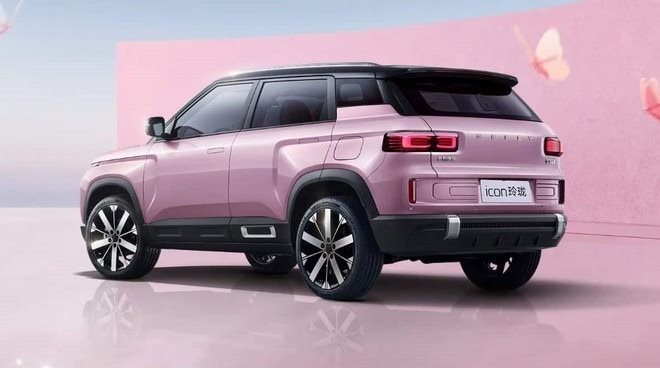
A new model launched by Geely.
Tasco Auto once unexpectedly “parted ways” with China’s largest electric vehicle manufacturer – BYD
Prior to Geely, Tasco Auto’s subsidiary, New Energy Holdings (NEH), collaborated with BYD to distribute this brand in the Vietnamese market.
According to the initial plan, BYD intended to establish up to 50 dealerships in Vietnam during 2024 and 2025. Consequently, NEH could have accounted for up to one-third of BYD’s intended sales in Vietnam, corresponding to the required number of dealerships to be developed.
However, on May 6, 2024, NEH issued a notice about halting all BYD automotive distribution projects.
The reason cited was the shift in NEH’s business strategy, which was no longer aligned with the plan to invest in a dealership system for distributing the BYD automotive brand from China.
Subsequently, BYD Vietnam responded: “BYD Vietnam has approved NEH’s request to withdraw from the project. This decision was made due to adjustments in the business strategy of NEH’s parent organization.
Apart from NEH, BYD Vietnam still has other investors participating in BYD dealerships in Vietnam. The company’s upcoming plans in the Vietnamese market remain unaffected.”
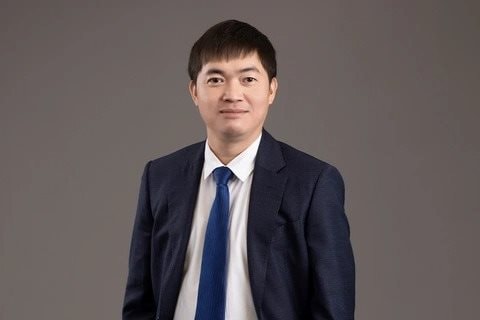
Vu Dinh Do.
According to Vu Dinh Do, Chairman of Tasco, the Vietnamese automotive market is becoming one of the most fiercely competitive arenas globally. It is a gathering place for numerous major automakers from Japan, South Korea, and China, making the race more intense and unpredictable than ever.
Nonetheless, Tasco continues to sell Chinese cars.
The New Tax Declaration for 2.2 Million Business Households: A Comprehensive Guide to Navigating the Changes.
By the end of 2024, Vietnam is expected to have approximately 2.2 million stable business households, with a total tax revenue of nearly VND 26 trillion from this sector. With the planned abolition of the lump-sum tax from January 1, 2026, the Ministry of Finance has proposed a new regulation. This proposal suggests that individuals and business households will be required to self-declare and pay taxes according to a direct tax calculation method (a percentage of revenue), with a roadmap for the implementation of electronic invoices based on revenue.
“Quy Nhon: The Emerging Real Estate Epicenter of Central Vietnam”
The merger of Binh Dinh and Gia Lai provinces marks a pivotal moment for the South Central Coast and Central Highlands regions of Vietnam. This union has unleashed a new era of development, with Quy Nhon taking center stage as the focal point for investors. Strategically located and boasting breakthrough infrastructure, Quy Nhon is poised to become the heartbeat of this vibrant region.
The Joy of Labor: A Photo Essay on the Harvesting of Lychees
The lychee season has arrived, and the entire Phuc Hoa region is buzzing with excitement and awash with vibrant red hues. From the early morning hours, the locals are hard at work, meticulously gathering the luscious clusters of fruit that are the culmination of a year’s worth of diligent care and dedication.

























